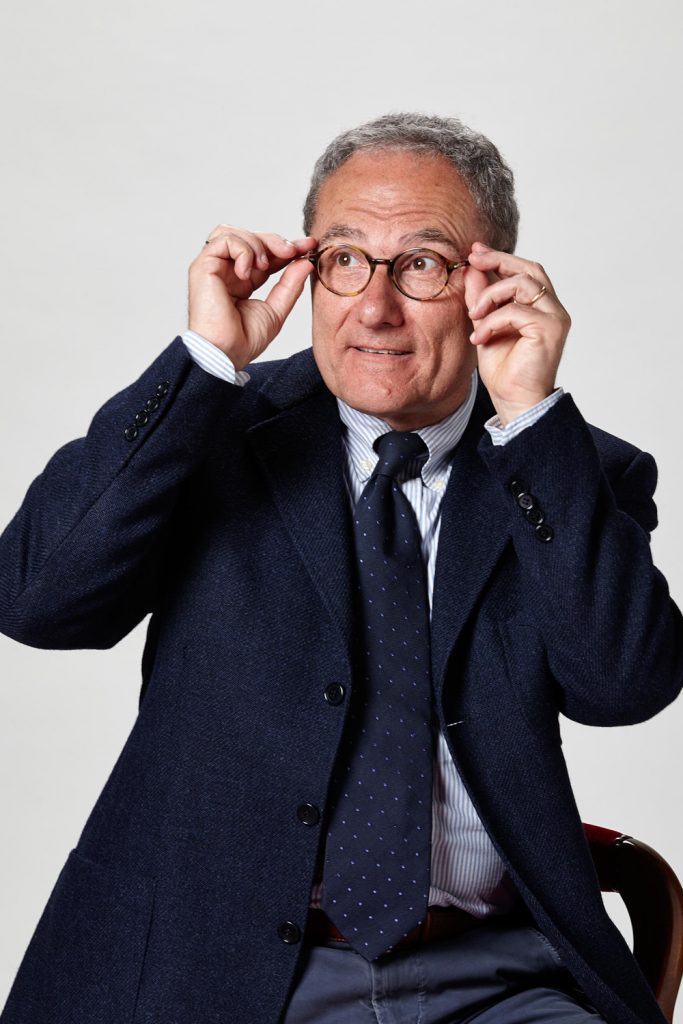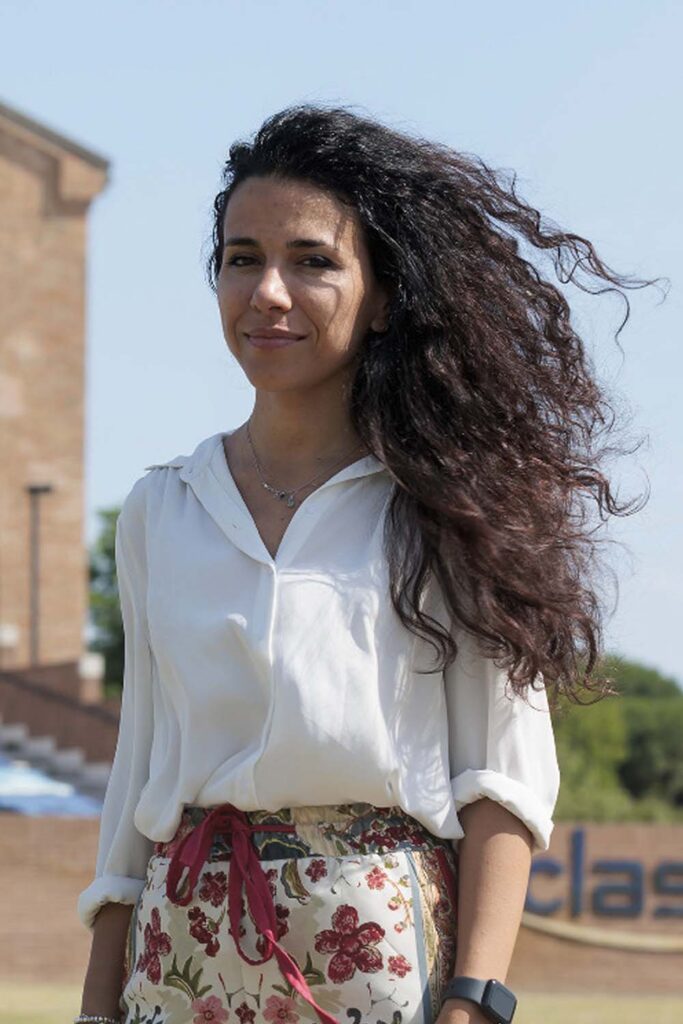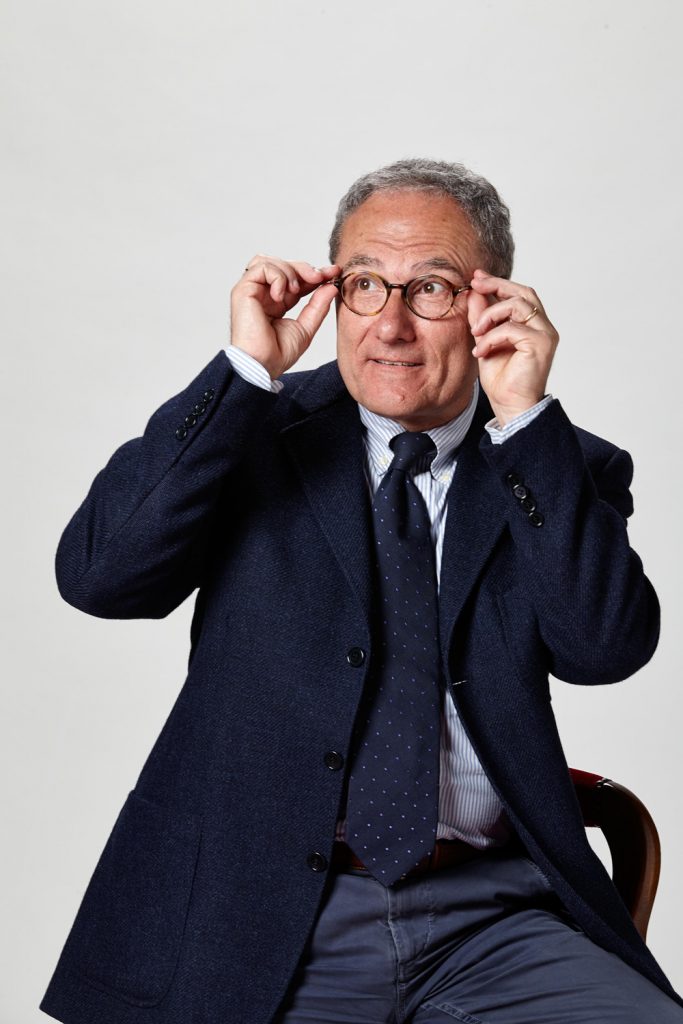Angelo Nicastro

Born and raised in Romagna, he obtained his classical A levels at the Dante Alighieri Lyceum of Ravenna, diploma in Viola at the Conservatory of Bologna, and graduated with a degree in Philosophy from the University of Bologna, with a thesis on musical education.
He carried out an in-depth study of the string quartet with prof. Enzo Porta improving his skills at the Fiesole Music School directed by Piero Farulli.
In 1983 he founded the Accademia Bizantina, to which he devoted himself as a musician, artistic director, and coordinator, quickly turning the academy into one of the most accredited Italian ensembles at an international level, and establishing close collaborations with great artists. A particularly intense collaboration was with composer Luciano Berio, who was also an honorary president of the Accademia.
Up until 1998 he organised a great number of concerts with the Accademia Bizantina, held during festivals and in important concert halls both in Italy and abroad in addition to numerous recordings for Denon, Frequenz, and Arts. In addition to his artistic endeavours he also taught Viola and String Quartet at the Istituti Musicali Parificati.
In 1998 he was appointed Artistic Director of the Ravenna Festival and of the Opera and Dance Seasons at the Alighieri Theatre in Ravenna, creating and developing several projects.
In particular, he coordinated the project on the “Scuola Napoletana” desired by Maestro Riccardo Muti, aimed at the rediscovery and promotion of eighteenth-century Neapolitan musical, operistic, and holy heritage. The outcome of the collaboration between Ravenna Festival and the Pfingstfestspiele of Salzburg, the project paved the way to numerous productions held in other major European theatres such as the Paris Opera and the Opera Real in Madrid.
He is regularly invited to judge international opera competitions, and holds seminars and masters for artistic training courses.
Since 2012 he is Artistic Director of the Fondazione Renata Tebaldi, which promotes the international opera competition named after the great soprano.
He collaborates with the Italian Opera Academy inaugurated by maestro Riccardo Muti in 2015.
Anna Leonardi

Anna Leonardi is a musician and cultural manager. After graduating in oboe, she played the oboe and English horn with the ‘Luigi Cherubini’ Youth Orchestra. She has performed with some of the most prestigious Italian and international orchestras under renowned conductors such as Riccardo Muti, Valery Gergiev, Myung-Whun Chung, Fabio Luisi, Zubin Mehta, James Conlon and Daniele Gatti.
Alongside her musical career, Anna Leonardi undertook further training in cultural management at the University of the Italian-speaking regions of Switzerland and at the MADAMM in Lucca. Since 2017, she has been the artistic director of the Festival della Piana del Cavaliere and the ‘Vittorio Calamani’ Philharmonic Orchestra. The orchestra was awarded the 2024 Abbiati Prize for a premiere performance in Italy, and in 2025 was recognised as the regional orchestra of Umbria. In 2022 and 2023, Leonardi collaborated with the Milano Musica Festival, and in 2023 she was appointed editorial director of SZ Sugar.
In 2024, she received the Premio Italia Giovane, sponsored by the Presidency of the Italian Republic and honouring the talent and commitment of outstanding Italian artists. Leonardi also teaches chamber music and music management.


